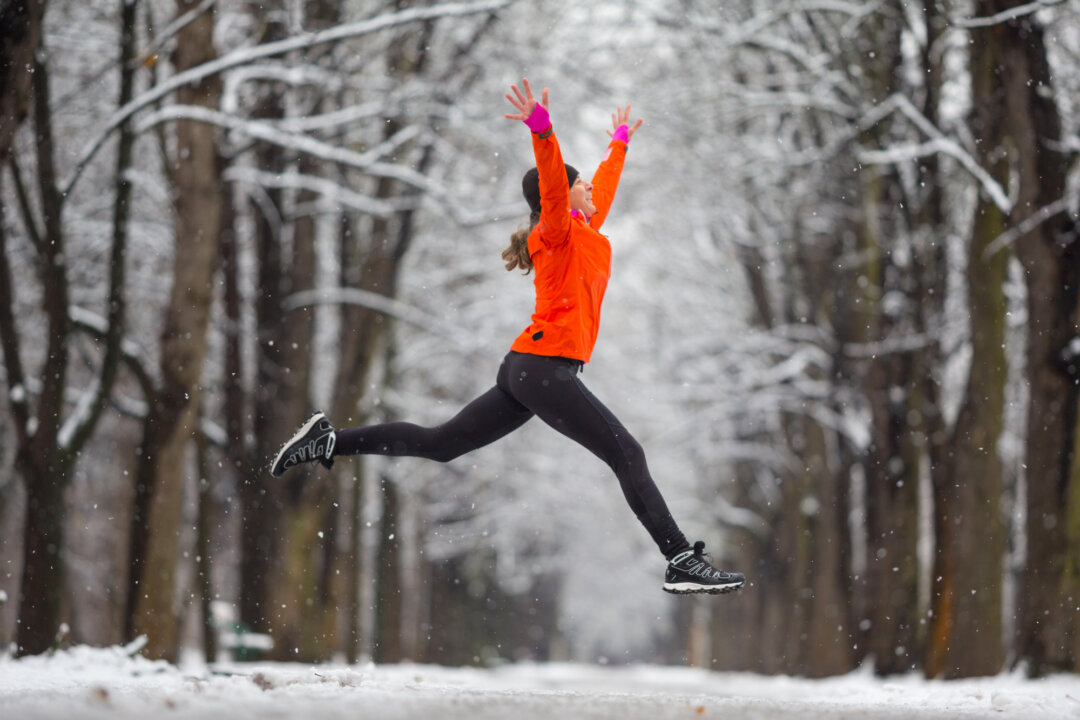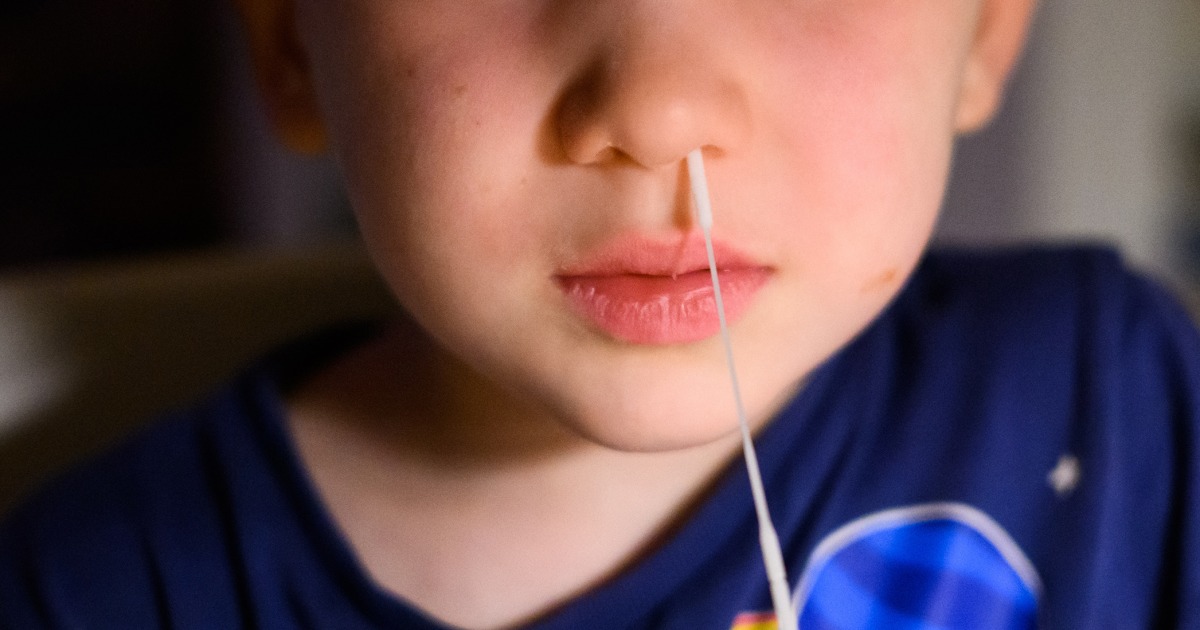
Why caesarean babies may soon be getting this very unappetising 'shake' Babies delivered by caesarean have a increased risk of asthma and allergies It's thought this is because they miss out on exposure to protective microbes By CARA LEE Published: 01:06 GMT, 31 December 2024 | Updated: 01:38 GMT, 31 December 2024 e-mail View comments Unpleasant as it may sound, babies delivered by caesarean could benefit from a most unlikely one-off drink – breast milk mixed with a tiny amount of their mother's faeces. In the first trial of its kind, scientists from Finland showed that a so-called 'poo milkshake' could introduce beneficial microorganisms into the guts of surgically delivered newborns. Babies delivered by caesarean have a slightly increased risk of asthma, allergies and inflammation of the digestive system in childhood and later in life, compared with babies delivered vaginally.
It's thought this is because they miss out on exposure to protective microbes from their mother's intestines and vagina, which colonise the birth canal. A landmark 2019 study in the journal Nature found that the gut microbiome (the trillions of bacteria, fungi and viruses in the digestive tract) in vaginally delivered babies was almost identical to their mother's 'good' gut bacteria but those of babies born via caesarean had more bacteria typically acquired in hospitals. The gut microbiome profoundly impacts nearly every aspect of human health, including digestion, immunity, metabolism, brain function, and development from birth.

'The microbiome communicates with the immune system, 70 per cent of which is found in the gut, and produces small molecules – including short-chain fatty acids – which influence the immune system,' explains Dr Lindsey Edwards, principal investigator at the Centre for Host-Microbiome Interactions at King's College London . Instead of being exposed to their mother's vaginal and intestinal microbes during delivery, caesarean babies are often instead first exposed to skin microbes of healthcare workers, or those circulating in the hospital environment, which then colonise their gut.' Scientists from Finland showed that a so-called 'poo milkshake' could introduce beneficial microorganisms into the guts of surgically delivered newborns (stock) Breastfeeding and exposure to diverse environments can help restore a healthy microbiome over time, doctors say (stock) They're not inherently bad but they may create an imbalance and a reduced diversity of beneficial microbes,' says Dr Edwards.
This can increase the risk of allergies, asthma, obesity and metabolic disorders later in life, she says.' However, breastfeeding and exposure to diverse environments can help restore a healthy microbiome over time.' The Finnish study has yet to be published in a peer-reviewed journal, but early findings presented at a recent medical conference in Los Angeles suggest the 'pooshake' can boost levels of 'good' gut bacteria in babies born by caesarean.
First, researchers from the Finnish Institute for Health and Welfare in Helsinki screened mothers' faeces for potentially harmful bugs. Those who tested positive for any were excluded from the study. Each sample was then diluted with a saline or glycerol solution, before the liquid was filtered to remove undigested food particles and other debris.
Fifteen newborn babies were randomly assigned to receive a one-off concoction of their mother's milk containing 3.5 milligrams of her treated poo sample during their first feed. Another 16 were randomly assigned to receive a placebo.
Scientists then analysed the babies' stools and found that, while they all had a similar mix of gut microbes on the day they were born, by the second day the 'pooshake' cohort had been colonised by more of their mothers' gut microbes. The trial is ongoing and will follow the babies for two years. The proportion of spontaneous deliveries — when a woman goes into labour without the use of drugs or other techniques — has steadily declined in the last 10 years (file image) The lead researcher, Otto Helve, director of the Department of Health Security at the Finnish Institute for Health and Welfare, is keen to stress this is not something parents should try at home.
' Read More I'm sick of being judged for choosing to have my two sons by C-section: CLAIRE COLEMAN These new findings are exciting,' adds Dr Edwards, also a senior lecturer in microbiology at King's College London.' This study has huge potential to dramatically reduce the incidences of these diseases.' However, Dr Edwards adds that the study is small and the concept needs to be tested on a much larger cohort to check the method is safe and beneficial.
It's not only babies who can potentially benefit from this kind of treatment – called faecal matter transplant, or FMT. It's already used on the NHS for patients who are suffering from a persistent infection with the superbug Clostridium difficile, which can be resistant to antibiotics and causes severe inflammation in the intestines. If three different courses of antibiotics have failed, FMT can be offered.
' By the time you've had three courses of antibiotics, you've wiped out pretty much all of the beneficial species of bacteria in your gut,' says Dr Edwards, who is currently involved in research to see if the same technique can treat some forms of liver disease.' The Finnish study has yet to be published, but early findings suggest the 'pooshake' can boost levels of 'good' gut bacteria in babies born by caesarean. Pictured: A caesarean section in operation (file image) FMT introduces a healthy donor's diverse microbes, restoring balance as the beneficial microbes outcompete C.
diff for nutrients and space.' She adds that it has a success rate of more than 90 per cent for C. diff infections.
Read More Why one in four new babies born last year were delivered by Caesarean In some cases, FMT is offered as a treatment for inflammatory bowel disease (IBD) such as ulcerative colitis – although only a few centres in the UK currently have the facilities to carry out the procedure. IBD and other chronic inflammatory conditions are thought to be linked to an imbalance of microbes in the gut, which affects the immune system and can lead to widespread inflammation. With FMT, microbes are taken from a donated stool sample that's been extensively screened for harmful bugs – the microbes are then transferred into the intestines in a liquid during a colonoscopy (when a flexible tube with a camera at the end is inserted via the anus), or by swallowing a capsule.
' We think FMT has huge promise to tackle lots of chronic inflammatory diseases – essentially we're trying to use it to reset the interaction between the gut microbiome and the immune system, to boost the immune system,' says Dr Edwards. 'We know it has short-term positive effects but we need to follow people who've had it for some time to see if it really works in the long term and to check it is safe.' FMT does hold 'significant promise' for addressing a range of diseases, agrees Professor Lindsay Hall, chairman of microbiome research at the University of Birmingham.
' But we need to dig deeper into understanding the specific microbes and mechanisms driving these effects,' she adds. 'Ultimately, isolating and harnessing these key beneficial microbes could lead to more targeted, safer, and scalable therapeutic approaches, making these treatments more practical for clinical use. 'For the ultimate goal is to stop using actual poo altogether, says Dr Edwards.
'In future we ideally just want to pick out the beneficial species that we know can effectively colonise the gut but we're not at that stage yet.' NHS Los Angeles Finland Share or comment on this article: Why caesarean babies may soon be getting this very unappetising 'shake' e-mail Add comment.










:upscale()/2025/01/02/904/n/1922729/e3450ac16776fa3f4c89a4.49728512_.jpg)




